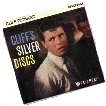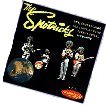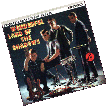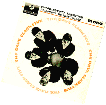|
|
|
|
Chart Statistics and
Trivia

|
|
Who was the most successful singles chart artist of the
60s?
Who
guessed Cliff? . . . or Elvis? . . . or The Beatles?
The
amazing answer is . . . Hank B.Marvin!
who had 303 weeks on chart
with The Shadows, 328 weeks with The Shadows backing Cliff and 9 weeks
on chart with Cliff as a duet on ' Throw down a line ' which is, all
together,
a
grand total of 640 weeks!
.
. . now read on for more crucial trivia and a few notable
dates in the industry's history
Crucial 60s Trivia Notable
Industry Dates 'I
Wish I Hadn't Said That'
Only
4 artists hit the singles chart every year of the decade:
Cliff Richard, Elvis Presley, Roy Orbison and Jim Reeves
The
only artist to achieve a top ten singles hit in every year was Cliff
Richard
There
were 187 No.1 singles by 113 different acts
13
acts had a total singles chart life of 1 week at No. 50
Of
the Sixties singles chart toppers, only Cliff Richard, Elvis Presley
and The Bee Gees also had No. 1 hits in the Seventies
Elvis
and Cliff are the only artists to have had No.1 singles
hits in the 50's 60's and 70's
Only
Gerry and The Pacemakers reached No.1 with their
first two singles, going on to make it 3 in a row
No.1
on the very first singles chart listing of the decade
was Emile Ford and The Checkmates with
' What Do You Want To Make Those Eyes At Me For '
No.
1 on the last singles chart listing of the decade was
Rolf Harris with ' Two Little Boys '
Only
3 acts had at least 10 hit singles, 10 hit LP's and 10 hit EP's:
Cliff Richard (92 total), Elvis Presley (86 total) and The Beatles
(48 total)
Prior
to the EP chart listings, extended play records were listed on
the singles chart, assuming sales were sufficient to register.
On the demise of the EP chart this practice was reinstated until
February 1969 at which time EPs were no longer included
The
No.1 record on the first EP chart was Cliff Richard's 'Expresso Bongo'
The
only record ever to enter the EP chart at No.1 was Cliff's
'Expresso Bongo' on the very first chart. Two titles managed to enter
at No.2: Long Tall Sally (Beatles) and Four Tops' Hits (Four Tops)
Only
ten titles managed to enter the EP chart
in a top ten position during the decade
The
No.1 record on the very last EP chart was 'Beach Boy Hits'
Only
Elvis Presley had titles listed in both the first and last EP charts
produced - something to do with his initials, maybe?
Joan
Baez had more EP chart weeks than any other solo female artist
The
Beatles sold many more records than any other act during the decade
but did not stay in the charts for very long because of the speed
of the sales
hence their unexpectedly low performance in the chart statistics
No.1
position on all three charts ( LP, EP and Singles ) in the same week
was achieved 25 times during the Sixties, but by only four different
acts!
The Shadows ( 1 ) Elvis Presley ( 1 ) The Rolling Stones ( 2 )
and The Beatles ( 21 times! )
The
best position reached by any of Johnny Mathis' four
EP chart entries was No. 17
Other
than 'Various Artists' titles, no fewer than 39 acts had success
in the EP chart without a single entry in the Singles chart,
including Paddy Roberts, whose two EPs both reached No.1
The
shortest lived record label was the Joe Meek-owned ' Triumph '
label which only lasted for a few months during 1960 but still managed
to produce a top ten single with Michael Cox's 'Angela Jones'
From
April 1965 to November 1968 no instrumental single reached No.1
The
only U.S. act to reach No.1 on the singles chart during 1963 was
Elvis Presley and, even then, stayed there for only a single week
The
highest total of weeks on the singles chart for any act in one year
was achieved by Engelbert Humperdinck in 1967. He spent 97 weeks on
the chart, helped immensely by 'Release Me' which, incredibly,
stayed on the singles chart listing for a total of 56 weeks!
Frank
Sinatra's 'My Way' single notched up a total of 122 weeks
on chart, entering or returning no less than nine times!
Keith
West, whose solitary single hit 'Excerpt From A Teenage Opera'
reached No.2 was, at the time, a member of a band called 'Tomorrow'.
The band were never heard from chart-wise and neither was the opera
after a follow-up track named 'Sam' failed to chart
The
only act to appear in the 'Top Ten Acts' list during
every year of the decade was Cliff Richard
In
1961 Frank Sinatra formed REPRISE records which he sold
to Warner Brothers in 1963, becoming Vice President and Consultant
to the Warner Brothers Picture Group
The
first gold disc to be presented by EMI to a classical artist was
awarded to Yehudi Menuhin in 1961 by Sir Joseph Lockwood to
celebrate an unbroken association lasting over 30 years
During the Sixties The Beatles achieved
17 No1 singles, 10 No1 albums and 8 No1 EPs
The
Kasenetz-Katz Singing Orchestral Circus with their 1968
No.19 single 'Quick Joey Small' were actually comprised of 8 groups!
These were: Ohio Express and 1910 Fruitgum Company who both
had hits in their own right, plus Music Explosion, Lt.Garcia's Magic
Music Box, Teri Nelson Group, Musical Marching Zoo, JCW Rat Finks
and
St.Louis Invisible Marching Band.
Their shows were staged as a circus, complete with circus acts!
In
1964 Singles cost 6s 5d (32p) and LPs cost �1-15s-0d (£1.75p)
1962 Record Sales in the UK: 78s 1,944,000 45s
55,239,000
1968 Record Sales in the UK: 78s
206,000 45s 49,161,000 LPs
49,184,000
The best year for singles saw sales of 72,841,000
'Wild Thing' was produced in one take during
15 spare minutes at the end of a recording session
Finally ( at the moment ), I just thought you'd like to know
that the Dave Clark Five generated cash to pay for an early
studio session by Dave Clark doing two days of crashing cars
as stunt man in an Adam Faith film!
Back To Top
A Few Notable Dates in the Record
Industry 1948 - 1969
1948
Dr. Peter Goldmark and William Bachman of the American Columbia Co
developed the long playing vinylite 331/3 r.p.m. microgroove disc
in the
late 40s. It was announced to the press at the Waldorf Astoria Hotel
in New York on Friday 26th June 1948 in both 10" and 12" formats.
The machines to play them were manufactured by the
Philco Radio and Television Company of Philadelphia
January 1949
RCA announced the first release of 45 r.p.m. 7" vinyl discs which
gave the same playing time as the larger 78 r.p.m. discs
June 1949
Columbia issued 7" 331/3 r.p.m. discs with normal-sized centre holes
June 1950
Decca issued the first LPs on the U.K. market, made of 'GEON',
a tradename form of vinylite
November 1952
The first singles record chart was produced by the New Musical Express
October 1953
'Optional' removable centres appeared in 45 r.p.m. discs, allowing
them
to be used on the 'Victory' autochanger and later on other makes of
jukebox
September 1954
'Gruve-Gard' was introduced in America by RCA Victor, where the centre
and edge of a disc are thicker than the playing area, reducing scuff
marks during handling and when used in an autochanger
June 1958
First U.K. release of stereo discs made by PYE records
Early
in the 60s the 10" record format was dropped by all the major
record companies, leaving the 12" 331/3 r.p.m. and
7" 45 r.p.m. as standards
19th February 1960
EMI's last new coarse-groove 78 r.p.m. record was issued
'Rule Britannia' / 'Royal Event' by Russ Conway
9th June 1960
Bing Crosby was presented with a platinum disc by the Hollywood
Chamber of Commerce for estimated sales of 200 million records.
To that date he had recorded 2600 singles and 125 LPs
February 1961
All EMI 78 r.p.m. discs were deleted with the exception of royal
recordings and the 'History of Music in Sound' series.
These eventually disappeared on 23rd March 1962
June 1962
DGG ( Deutsche Grammophon Gesellschaft ) merged with Philips
on a 50/50 basis, retaining both record labels
1964
Philips introduced the musicassette ( compact cassette )
1965
American Columbia material ( marketed at first by 'Oriole' ) was launched
independently in the U.K. on the CBS label. Because of the still-current
use
of the trademark 'Columbia' outside of America by EMI, all American
Columbia
recordings were exported under the CBS ( Columbia Broadcasting System
) logo
1st July 1965
EMI Records Ltd and The Gramophone Co Ltd merged, trade continuing
under the name EMI Records
1966
Raymond M.Dolby opened a laboratory in London to develop
and produce his noise reduction system
1968
RCA opened an independent distribution, recording and ( later )
manufacturing operation in the U.K. as RCA Great Britain Ltd.
Back
To Top
|
|
Some
great quotes for you, which
come under the general heading of
'I wish I hadn't said that
...'
|
|
" The rest of the group is fine but the singer will have to go"
(
Eric Easton taking over as The Rolling Stones' manager in 1962 )
"We don't like their sound. Groups of guitars are on the way out"
(
Mike Smith, Decca A&R manager, turning The Beatles down in 1962
)
"You ain't goin' nowhere son.
You oughta go back to drivin' a truck"
(
Jim Denny of The Grand Ole Opry firing Elvis after just one performance
in 1954 )
Back
To Top
UK
Web Hosting by
Velnet web hosting
UK | Search Engine Optimisation
& Submission by Submit
Express
Web Address Domain Names from
Web Hosting Shop
|



